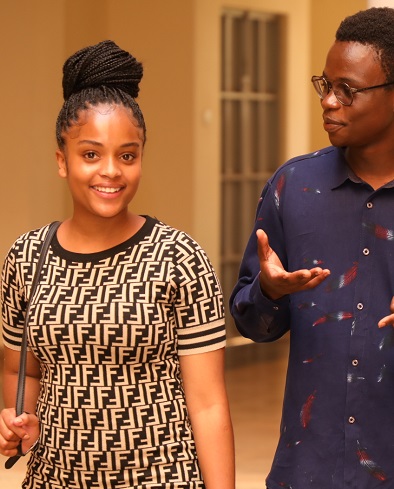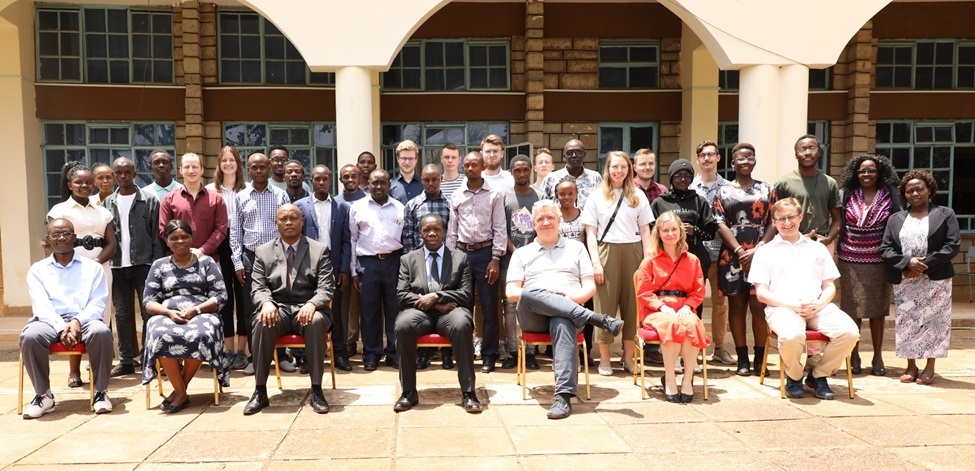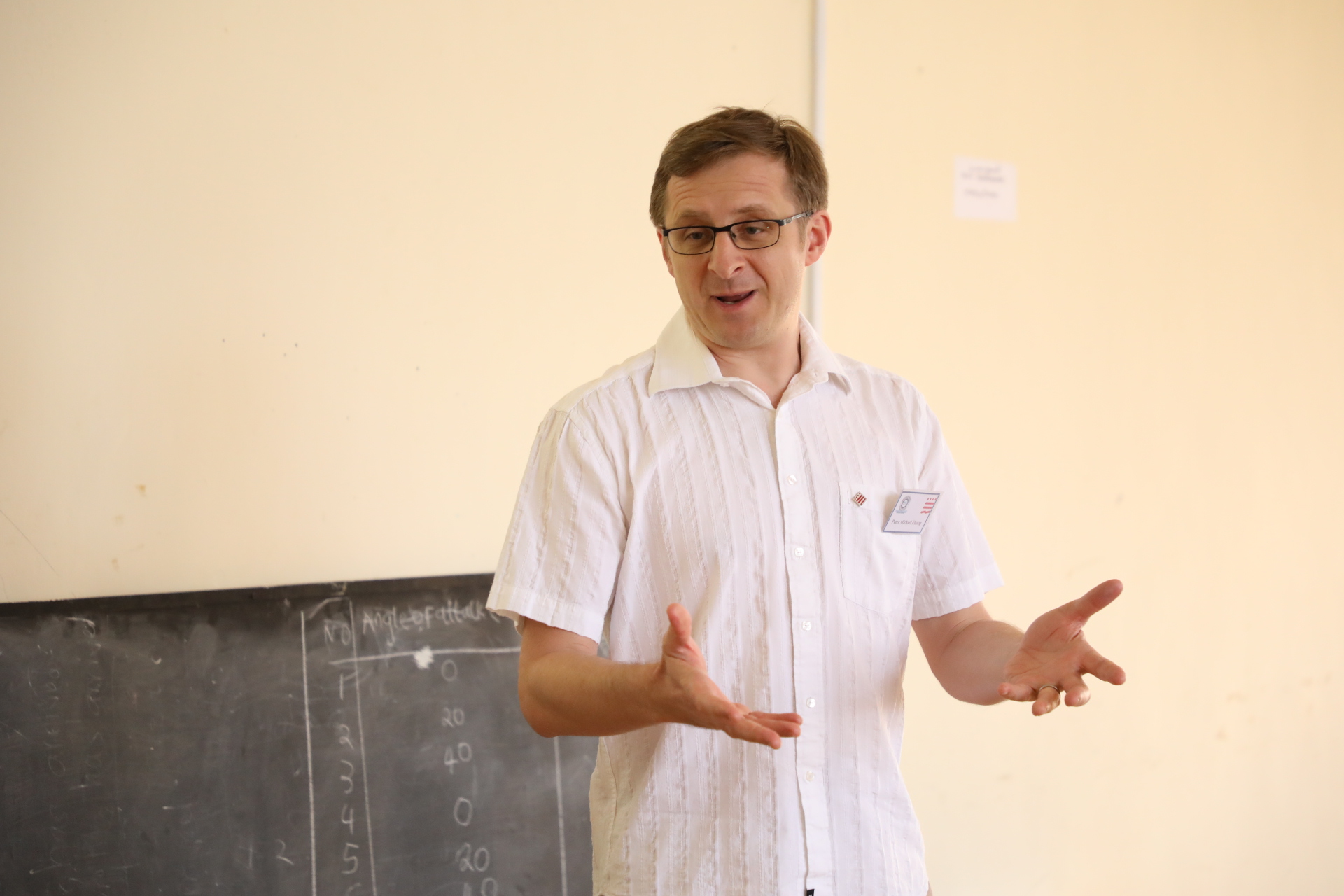The workshop participants posing for a group photo.
Masinde Muliro University of Science and Technology in collaboration with Brandenburg University of Applied Sciences (THB), Germany conducted a five-day Winter School Workshop to foster International Interdisciplinary Interactive (Inter3DNA) Learning Project. The event which took place from 27th February to 3rd March, 2023, came after MMUST’s three (3) staff and six (6) students visited THB in September 2022 for Summer School. The project sponsored by the German Academic Exchange Service (DAAD), is focused on finalizing Summer School Projects on the application of new techniques in ‘Agile Working’ to design projects. This was organized by the Registrar (Planning, Research, and Innovation), Prof. Alice Ndiema.
The participating students were drawn from four schools including; the School of Engineering, and Built Environment (SEBE), the School of Public Health, Biomedical Sciences & Technology (SPHBST), the School of Computing and Informatics (SCI) as well as the School of Agriculture Veterinary Sciences and Technology (SAVET). The students showcased various projects they designed as follows; Solar Box Project (SEBE), Internet of things in Agriculture Project (SAVET), and Telemedicine Project (SPHBS&T).
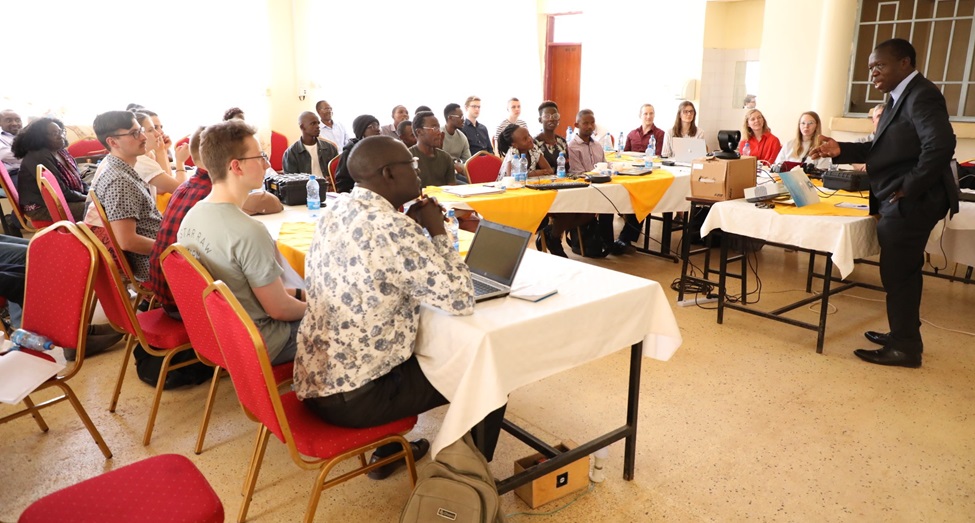
The Vice-Chancellor, Prof. Solomon Shibairo addressing the participants at the workshop.
Speaking during the workshop, the Vice Chancellor, Prof. Solomon Shibairo, noted that the projects designed by the students are a solution to challenges faced by Africa. He emphasized the need to focus on energy production to save humanity. “Africa is a fast-paced continent despite a few challenges, especially in the production of energy. Electricity generation is a challenge and we should support the solar box projects as a solution to this. With the use of advanced technology, we shall invest in solar energy to standardize electricity in the region. Let us embrace technology and invest in solar energy. We can do it,” he urged.
Expressing his delight towards the innovative ideas, the Deputy Vice-Chancellor (Planning, Research, and Innovation), Prof. Charles Mutai, pointed out that the projects will have a huge contribution to the field of research and encouraged the team to keep working together for more exciting innovations. “This is a timely venture that the University and the world at large require for development. I urge you to continue with this cause and partner in other areas of exchange programs, joint supervision, and joint research,” he stated.
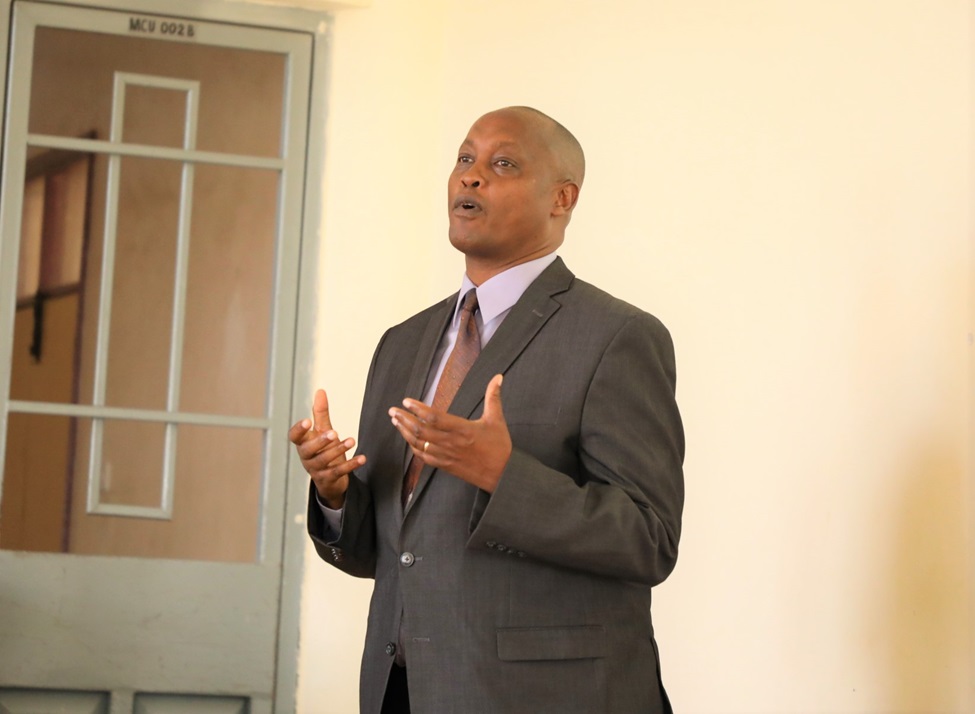
The Deputy Vice-Chancellor (Planning, Research, and Innovation), Prof. Charles Mutai speaking at the workshop.
In his presentation, ‘Modelling and Optimization of Complex Systems’, the Project Leader, Prof. Eng. Peter Flassig, acknowledged that this is a special exercise that brings together professionals from a wide array of expertise. In addition, he hinted that he is ready to support the projects.
“We are always looking for tools to increase the effectiveness and efficiency of community efforts. These projects are just what we needed to help us all produce better results. You too are contributing to the innovative world through this generosity. I believe the students’ personal experiences and presentations have helped demonstrate how relevant the information was. The presentation of the project’s content was excellent and truly beneficial. I am delighted to see students coming up with great ideas for professional experience. Thank you for sharing the rich ideas,” said Prof. Flassig.
The Project Leader, Prof. Eng. Peter Flassig explaining a point.
Equally, his counterpart, Prof. Dietmar Wikarski, stated that the workshop teaches students a holistic view of projects. Additionally that the workshop gives the students an opportunity to get more experience in the ever-changing job market.
Reiterating the Project leader, the Registrar (Planning, Research, and Innovation) -Prof. Alice Ndiema stated that the multi-disciplinary nature of the workshop makes it unique and the University is committed to supporting such activities, especially Multi-disciplinary research. “I had the good fortune of conducting this workshop with the professionals and students, who demonstrated enthusiasm for the presentations and covered the projects in a very clear and concise manner. When the young generation comes up with such innovations, it changes our worldview,” she stated.
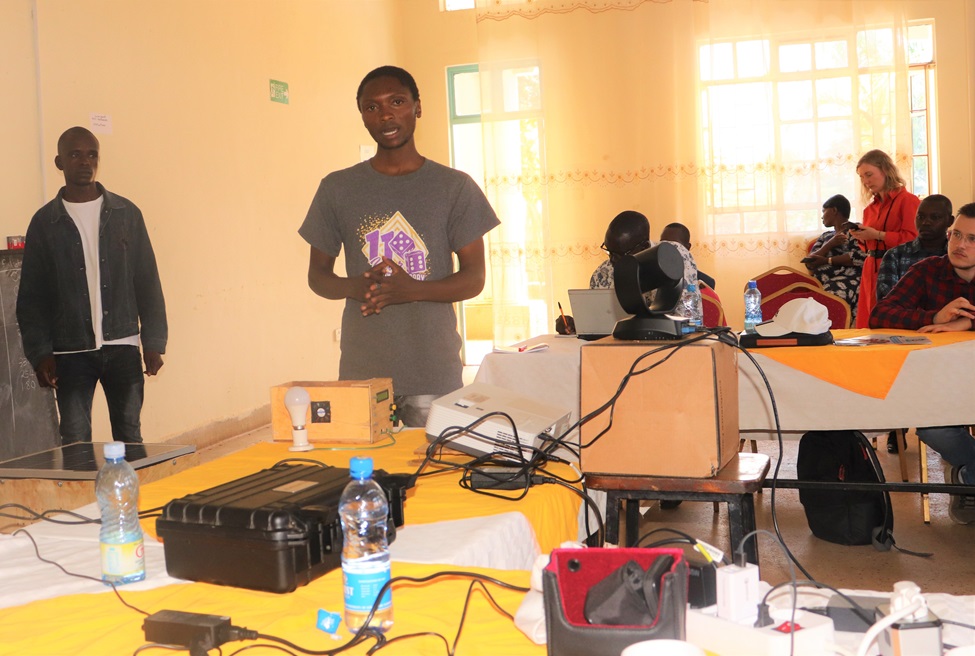
Students making presentations on solar box project.
According to the Lecturer in the Department of Mechanical and Industrial Engineering, Dr. Emmanuel Osore who is also the Supervisor of the Solar Box Project, the project aims at improving the utilization of solar energy by designing an efficient and portable solar unit. He stated that the project seeks to develop portable solutions to electricity shortages in remote areas. The mono-tailored solar panel comes with advantages such as extending the lifespan of a solar panel by introducing a backup, incorporating an auto-switching mechanism for weather patterns, and addressing limited resources in remote areas.
“This is a milestone; the world is heading to a green convention where we shall embrace the use of technology. Every technology requires sustainability and this will solve the sustainable energy challenges. This opens a window for novel ideas that will support sustainability in this era of climate change,” said Dr. Osore.
The Chairperson of the Department of Agro-Industrial Technology, Dr. Vitalis Ogemah, who is also the Supervisor, the Internet of Things (IoT) in Agriculture, revealed that the team successfully achieved their goal on the project which optimizes the use of bio-digester by installing sensors for the effective production of biogas and bio-slurry. “The workshop has enabled the teams to work together both physically and virtually. This is the beginning of our future collaborations in solving challenges faced by farmers,” he said.
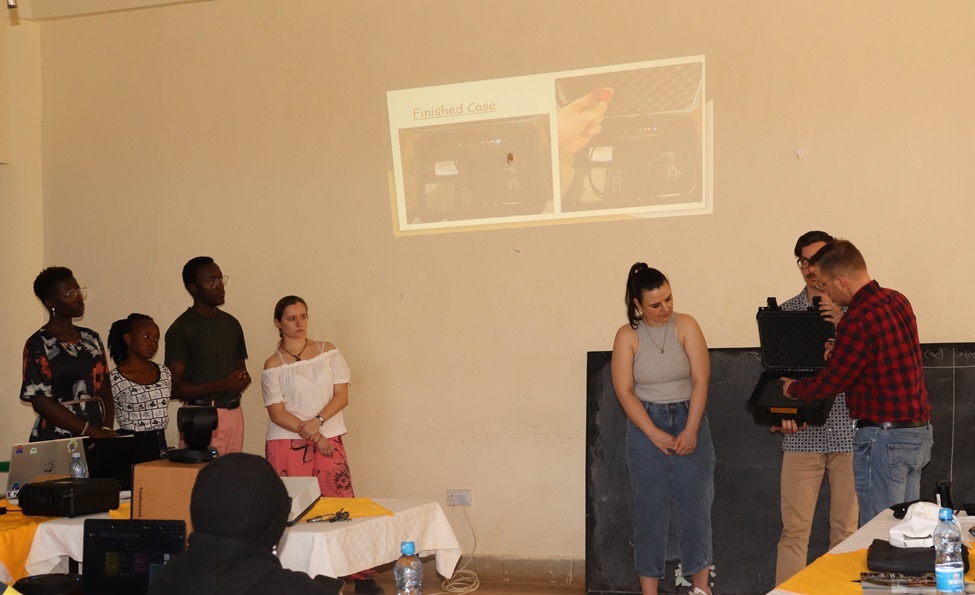
The Telemedicine team making a presentation during the workshop.
“Designing a telemedicine suitcase which can be used to diagnose diseases remotely, the use of technology and sensors, enable medical practitioners to communicate from one place station to another. This provides real-time data that bring doctors together and enable administering necessary services to patients. Our team has provided a quick toolbox that will help us provide effective and efficient health services to the community,” said Dr. Jasper Ondulo, a Lecturer (SCI) and the supervisor, Telemedicine Project.
Certainly, the workshop created a joint venture where the professionals and students shared ideas and came up with life-changing innovations which not only market the University programs but also instill knowledge and expertise in the students. This will also enable the University to churn out highly skilled professionals who can survive in the dynamic world.
By Verna Awuor ,Sheila Ivayo;
Photos by Shiundu Masafu


